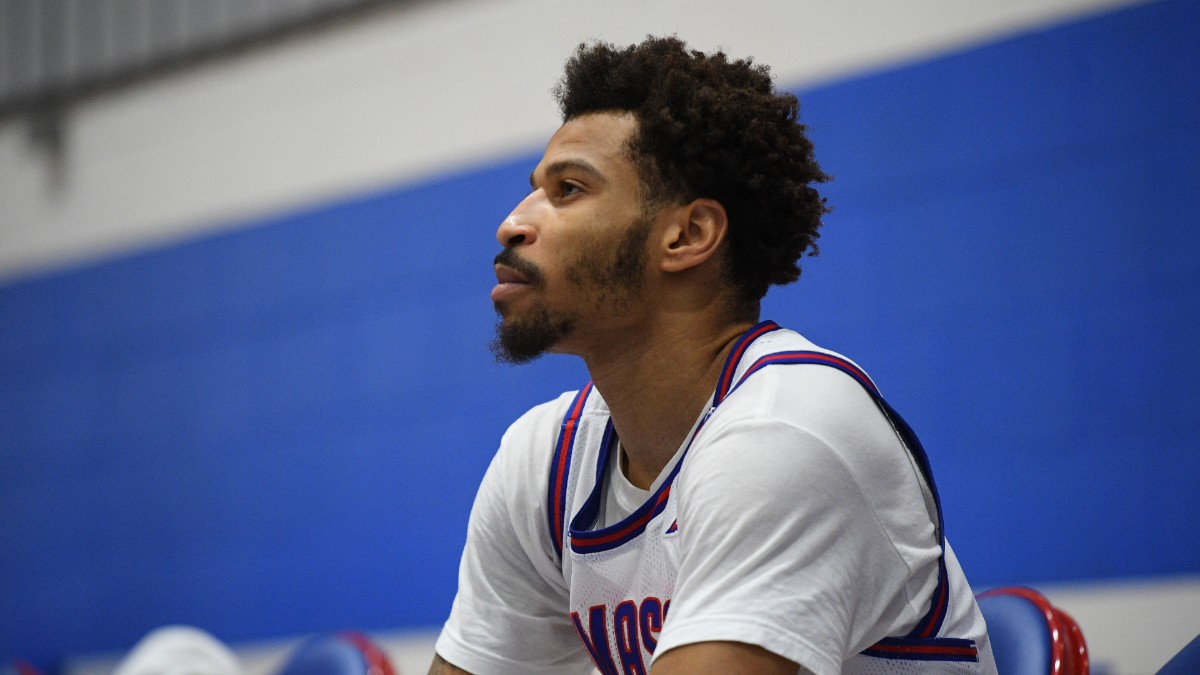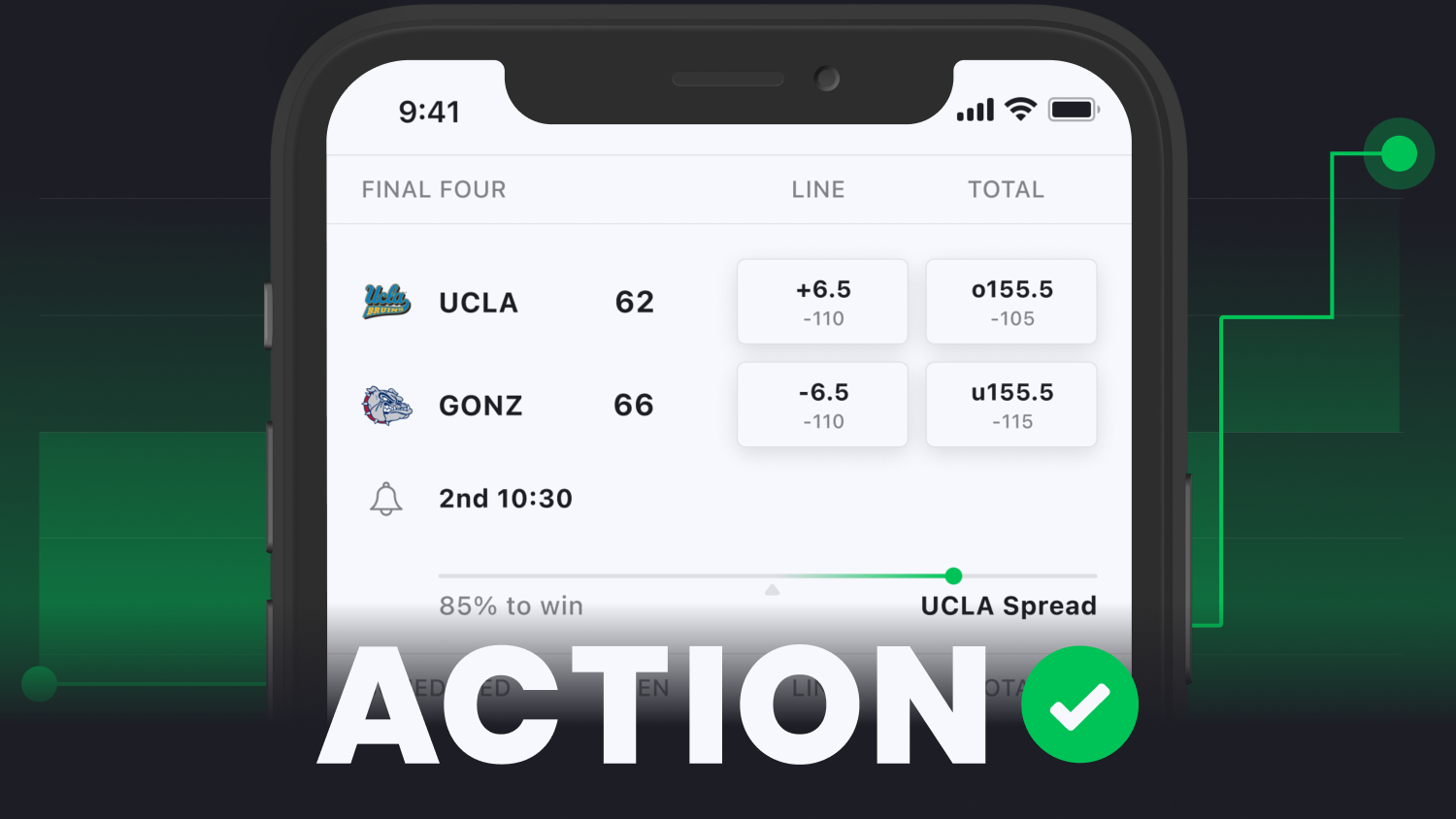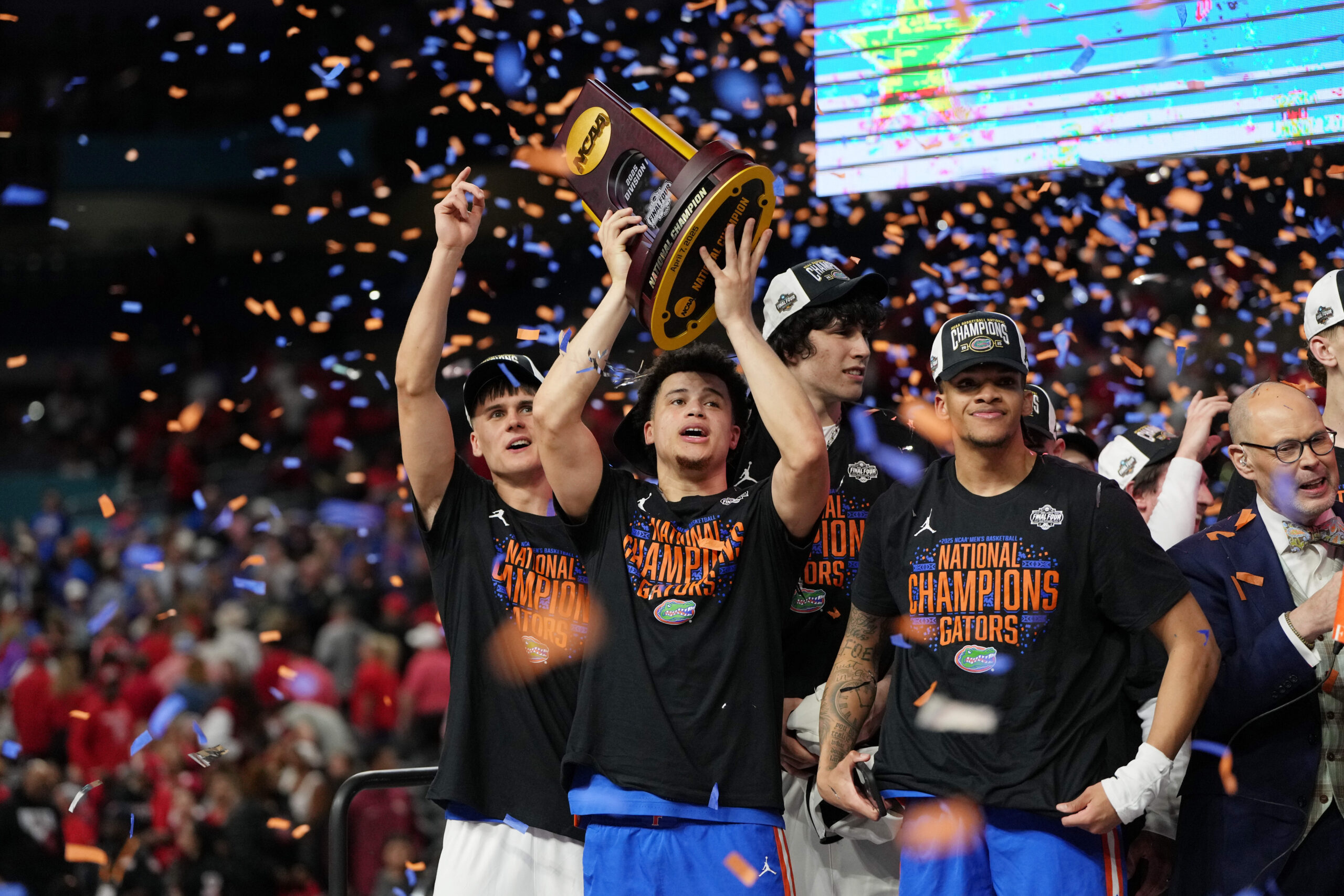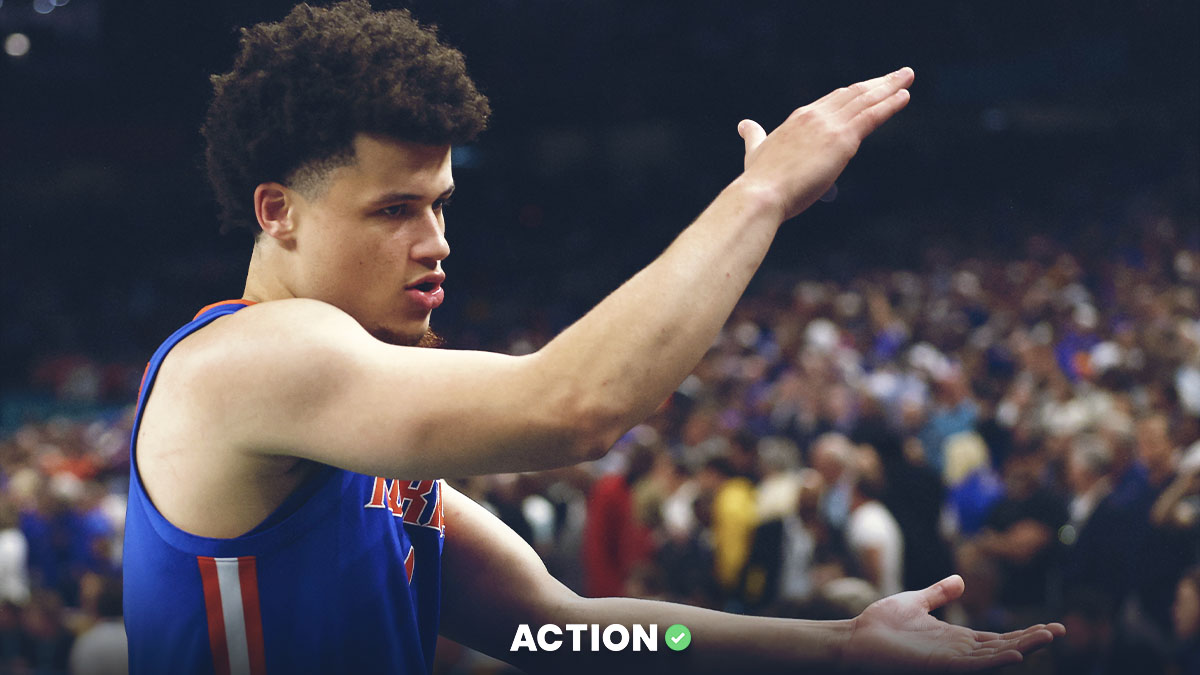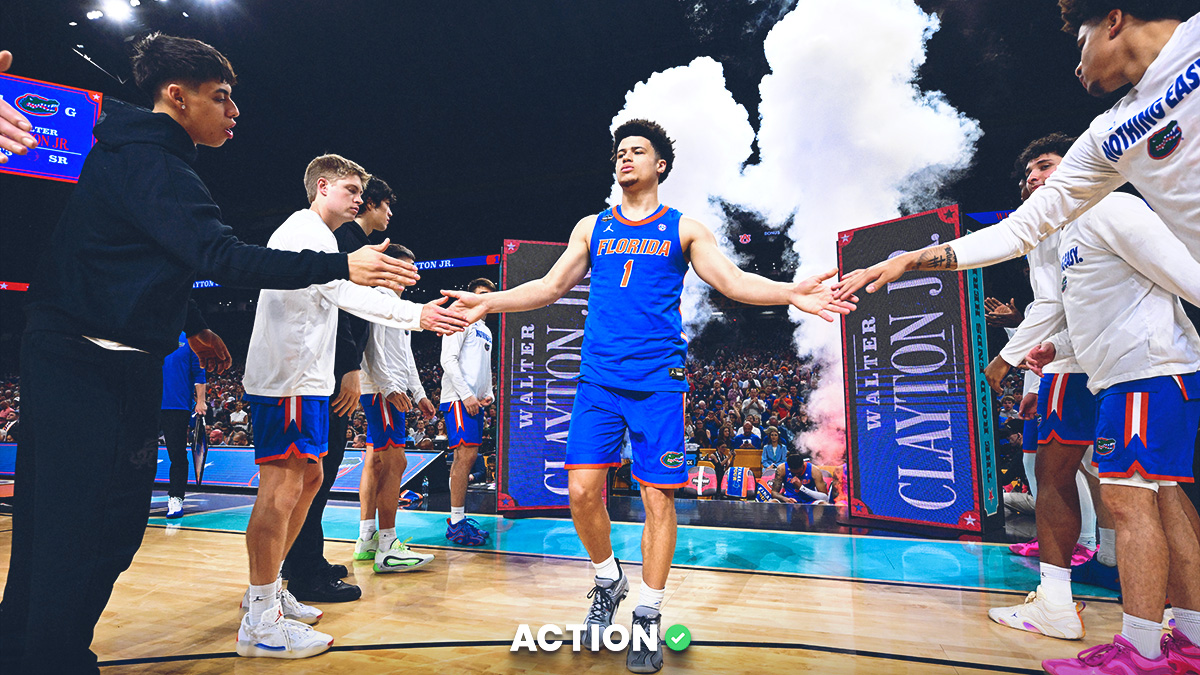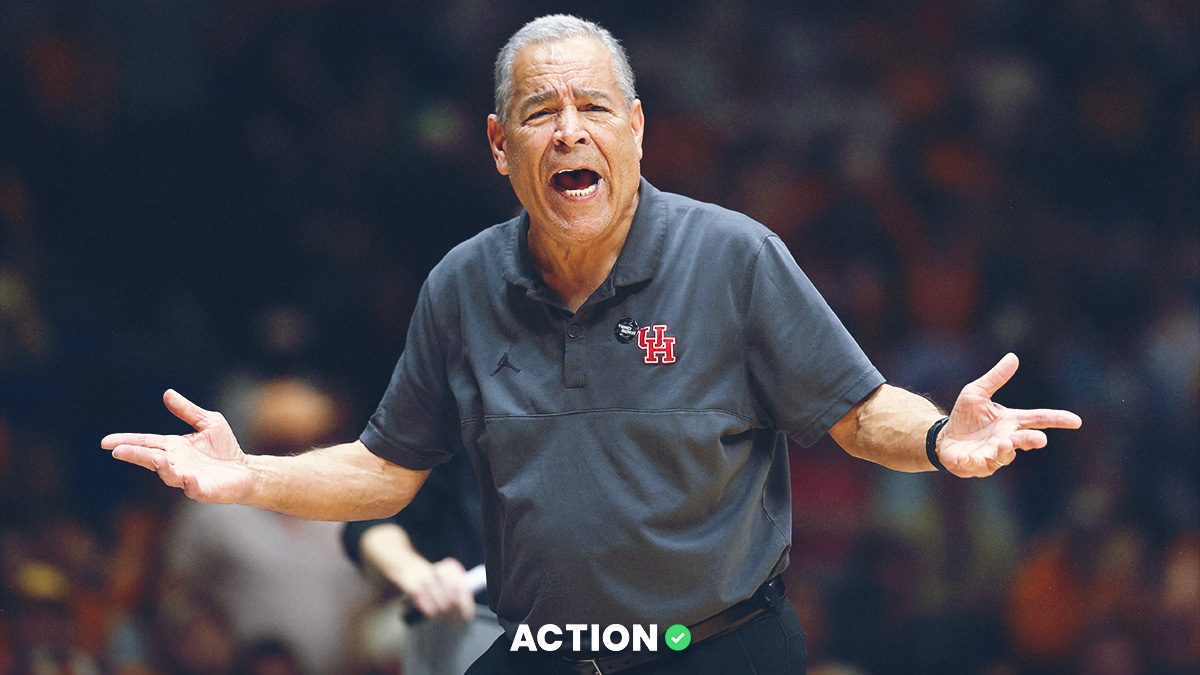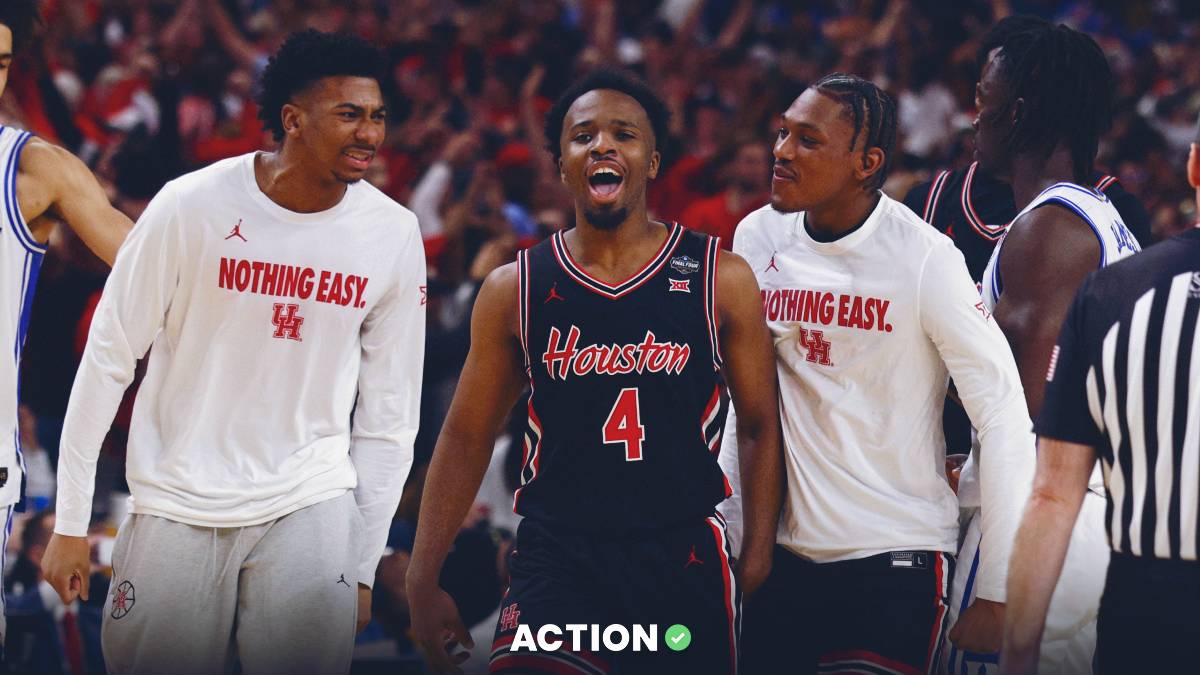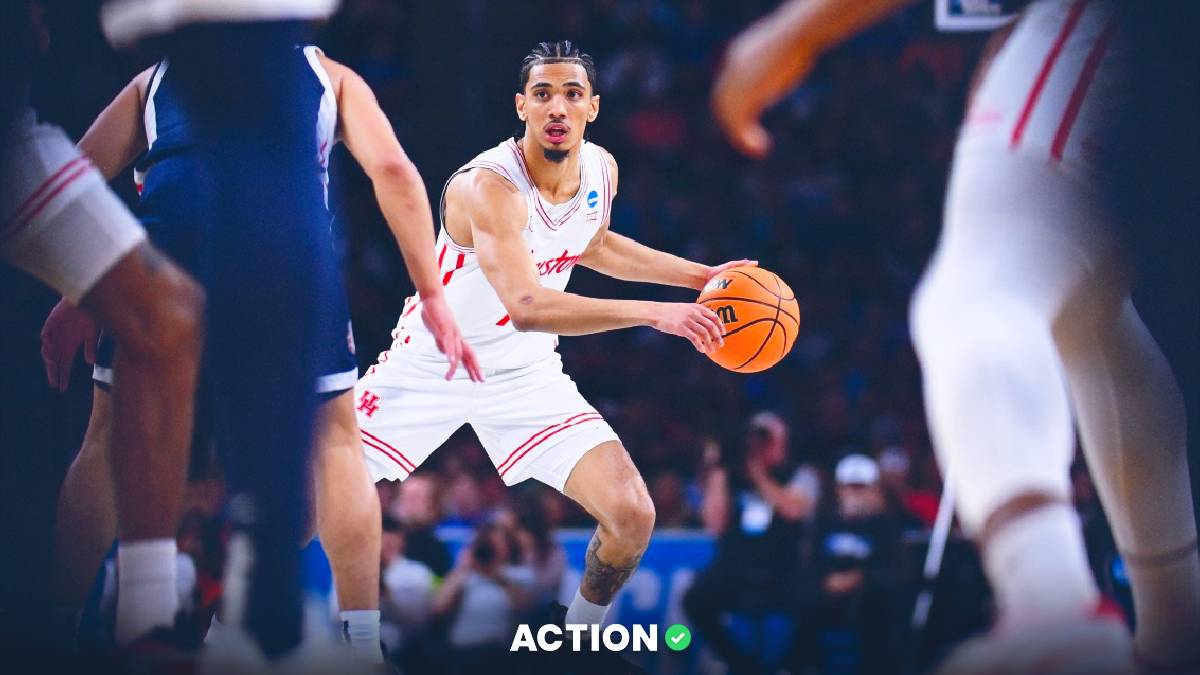UMass Lowell vs Vermont Odds
| UMass Lowell Odds | ||
|---|---|---|
| Spread | Total | Moneyline |
+6.5 -102 | 135.5 -110o / -110u | +240 |
| Vermont Odds | ||
|---|---|---|
| Spread | Total | Moneyline |
-6.5 -120 | 135.5 -110o / -110u | -300 |
I’ve been in beautiful Burlington, Vermont, covering my beloved Catamounts all week as they “stormed” to John Becker’s 10th America East Tournament final.
I used quotes because it wasn’t pretty. The Cats needed a late-game miracle to overcome eight-seeded Albany in the quarters and survived a late-game surge from New Hampshire in the semis.
However, it wasn’t easy for UMass Lowell, which needed overtime to take down seven-seeded UMBC and a late-game surge to beat Bryant.
Lowell needs to exercise some demons. Despite Pat Duquette’s impressive coaching job, the River Hawks haven’t won at Patrick Gymnasium since 2016.
But I truly think they have a fighting chance in the America East Tournament championship game.
As a Catamount fan, I’m scared of this matchup.
Vermont swept the regular-season series – and the second matchup wasn’t nearly as close as the final score indicates – but the River Hawks sent the first game to overtime and only lost by 12 in Patrick, despite shooting 9-for-35 (25%) from deep across both matchups.
Lowell likely plays Vermont to a draw with any amount of positive shooting regression.
That said, the River Hawks don’t care to shoot the long ball. They’re last in the league in 3-point rate for a reason.
Following the Karim Abdoul-Coulibaly injury – and subsequent drama-filled saga – Coach Duquette tweaked his flex-motion offense to focus solely on cutters and rim-running. The Hawks leverage two walking frontcourt matchup problems in Quinton Mincey and Cam Morris III to relentlessly attack the rim, draw fouls and snag offensive rebounds at unmatched AmEast rates.
And behind that attack, the Hawks lead the league in Offensive Efficiency.
Sadly, the Hawks are crashing their rim-running offense into the league’s best interior defense that never fouls and rebounds everything.
Becker has built his best defensive team behind the elite inside-out duo of Shamir Bogues and Ileri Ayo-Faleye. Vermont ranks in the top 60 nationally in Defensive Efficiency, and the legendary coach has never touched that mark.
The Cats lead the AmEast in 2-point shooting allowed (45%) and paint points per game allowed (30), alongside every other possible interior defensive category. They’re relatively good against cutters, mostly playing out in the regular-season series with Lowell.
Predictably, the River Hawks shot 42% from 2 across both head-to-head meetings. They scored 62 paint points combined, six fewer than the “perimeter-oriented” Catamounts.
From a matchup perspective, Ayo-Faleye should shut down whichever forward he gets matched up on. His three-level defensive versatility is astounding, and he overwhelmed AmEast Player of the Year Clarence Daniels in the semifinals.
It bears repeating just how good Ileri is. He was the best defensive player in the conference this year – and Becker agreed with me in his Albany post-game presser – consistently making game-changing defensive plays in crunch time.
This bears out in his on-off splits, which are insane:
| Vermont | IAF On-Court | IAF Off-Court | Difference |
|---|---|---|---|
| Defensive Rating | 94.7 | 105.6 | -9.7 |
| eFG% Allowed | 44.6% | 49.8% | -5.2% |
| At-The-Rim FG% Allowed | 54.4% | 59.6% | -5.2% |
| 3P% Allowed | 31.8% | 32.6% | -0.8% |
Additionally — at least on paper –Ayinde Hikim's matchup with Bogues is horrific. Bogues is a lights-out perimeter defender who has already forced nine steals in this playoff run alone.
While Hikim is an electric dribble penetrator, solid shooter, and transition creator, he and the River Hawks have a historical turnover problem.
That said, Hikim posted a 10-to-4 assist-to-turnover ratio in the regular-season series. He didn’t shoot great – 7-for-24 from the field, 2-for-7 from 3 – but creating for your scoring teammates and avoiding turnovers is great against Vermont.
The River Hawks will need Yuri Covington to knock down a few shots, given he’s been the team’s best spot-up player for two years.
But, more importantly, the real X-Factor in this game is Brayden O’Connor. As he’s been all year, except he recently got a new haircut, which really makes this handicap interesting.
Regardless, he scored 16 in the overtime matchup, but precisely one point in 38 minutes in the blowout loss at Patrick with a 60 ORtg.
On paper, O’Connor is an obvious matchup problem for Vermont. He’s a knockdown shooter (35% from 3 this year) who can get to and score from any area of the court with his deep bag.
More importantly, he’ll likely avoid the Bogues and Ayo-Faleye matchups, most likely drawing TJ Long. But if he can find switches onto Nick Fiorillo – Albany’s Sebastian Thomas did that very effectively with drag screens – or onto Aaron Deloney – who’s struggled mightily as a ball-screen defender this year, while O’Connor has initiated those sets very well – O’Connor could become a vital source of offense.
If O’Connor and Covington knock down shots, the River Hawks will keep this one close for 40 minutes.
The wild thing is that Vermont has a few paths to offense in this matchup.
In the first head-to-head regular-season matchup, Bogues and the frontcourt essentially posted up and dominated Lowell at the rim. The Catamounts scored 13 points on 14 post-up sets, 12 points on eight cuts and 36 paint points on 20-for-40 (50%) 2-point shooting.
Bogues bully-balled his way to 19 points on 8-for-14 (57%) shooting from the interior, as he’s liable to do when the Vermont offense stalls. Ayo-Faleye managed 18 points because he drew nine free-throw attempts and buried eight.
The team snagged 12 offensive rebounds, with Ayo-Faleye grabbing three.
They ended up with a balanced attack, as four players finished with double-digit points despite nobody shooting well from deep.
But in the second matchup, Deloney went thermonuclear, shooting 8-for-11 (72%) from deep while scoring eight points on four off-ball screen sets and nine on six on-ball screens.
It was a classic, aggressive, decisive AD performance. He had no hesitation and attacked relentlessly, confidently taking every shot. When he gets in that mode, nobody can stop him.
He even had three steals.
So, Vermont burned Lowell from the perimeter, shooting 10-for-25 (40%) from 3. Long even added 12 points with a few nice shots, albeit on low efficiency.
The Cats took 20 catch-and-shoot jumpers, and tough shot-makers made shots – a staple of the Becker offense – generating 18 points on 15 guarded opportunities (1.2 PPP).
Vermont can beat Lowell from the interior and the perimeter, partially because of the Hawks’ defense.
Lowell’s interior defense was elite last season with Coulibaly, and Max Brooks is still the league’s best interior eraser.
But sliding the somewhat undersized Morris and Mincey into the other forward spot has significantly hurt the River Hawks’ rim protection – especially Mincey, the league’s seventh-worst post-up defender by PPP allowed.
So, all of a sudden, the River Hawks rank third-to-last in the AmEast in paint points per game allowed and below-average in post-up PPP allowed, at-the-rim points per game allowed, and defensive rebounding rate.
They’re still above average at defending roll-men and cutters, which will play against Vermont. But the rest of the metrics are concerning.
Meanwhile, Lowell’s perimeter defense regressed during league play.
The Hawks run some drop-coverage principles, so theoretically, they should guard the perimeter and the rim well. However, they leaned into more at-the-level ball-screen coverage principles as their roster composition changed, and their perimeter defense lagged.
The River Hawks went from first to fourth in the AmEast in Open 3 Rate allowed and first to third in 3-point rate allowed. After forcing a 20% turnover rate last season, that number dropped to 16% this year.
The Hawks allowed a 25% 3-point shooting clip in the non-con and a 32% against AmEast opponents. A 25% clip would always regress, but I still think that’s partially due to their regressing perimeter coverage.
Vermont can attack either avenue, as long as the Cats don’t fall into old habits of slate ball movement and poor execution.

UMass Lowell vs. Vermont
Betting Pick & Prediction
Vermont’s depth is an issue.
Matt Veretto is still unhealthy and almost certainly won’t be for the championship game. TJ Hurley looks healthy, but he only played two minutes in the semi-final win, and I’m unsure how ready he’ll be for Saturday.
Vermont’s inconsistency on offense and late-game execution problems are overly problematic. Covering seven points is a big ask if the Cats get stale for any significant period or allow Lowell to sneak back in the game late with uncharacteristic turnovers and missed front-end free throws.
If they want to cover seven, the Cats must execute their five-out motion almost flawlessly while suffocating Lowell in the final minutes. They have yet to do that during this tournament run and have struggled all year, partially explaining their 10-14 ATS mark as a favorite this year.
Meanwhile, Lowell is 4-2 ATS as an underdog.
Additionally, Vermont wants to win a lower-scoring, lower-possession game on the back of its defense anyway, meaning points are at a premium, putting more value on the ‘dog.
I really think Lowell can see some positive shooting regression in the third matchup, especially given that the River Hawks rank first in the AmEast in Open 3 Rate. Vermont is also due for some negative 3-point shooting regression on defense after New Hampshire couldn’t make a shot in the semis.
O’Connor and Covington need to perform, but I think they can do so with all the defensive pressure focused on Hikim and the frontcourt. There’s a chance that Becker can invert his matchups like he did against New Hampshire and execute perfect perimeter defense, but I’m willing to bet against that.
Again, if the Wildcats shot better than 4-for-28 (14%) from 3, who knows what happens in that matchup – they covered anyway.
Finally, my Action Network colleague Collin Wilson projects Vermont as only a four-point favorite in the championship game.
I think Vermont wins this game – I really want Vermont to win this game. The Catamounts have the two-way schematic advantages to pull out their third straight tournament auto-bid.
But the road is littered with self-imposed and River Hawk-sized potholes, which I see leading to a one-possession finish.
So, I have to side with Lowell on the three-possession number.
Buckle up, folks, and Go Cats.
Pick: UMass Lowell +7.5 (Play to +5)
I’m somewhat shocked that the total opened this low.
The total for the past four Vermont-Lowell matchups closed between 140 and 143. Of course, both regular-season matchups this year went Under, but both also finished with 137 points.
Sure, plenty could go wrong with betting a Vermont over, given the Catamounts' elite defense, inconsistent offense, and languid pace. But both offenses have exploitable matchups.
Mr. Wilson projects the AmEast Championship total of around 136.5, and I agree with the math.
Pick: Over 133.5 (Play to 134.5)
Note, pick is made as of Friday evening. Updated odds are available at the top of this piece.


